Conflict-Related Sexual Violence Roundtable
November 15-16, 2023
The Hague, Netherlands
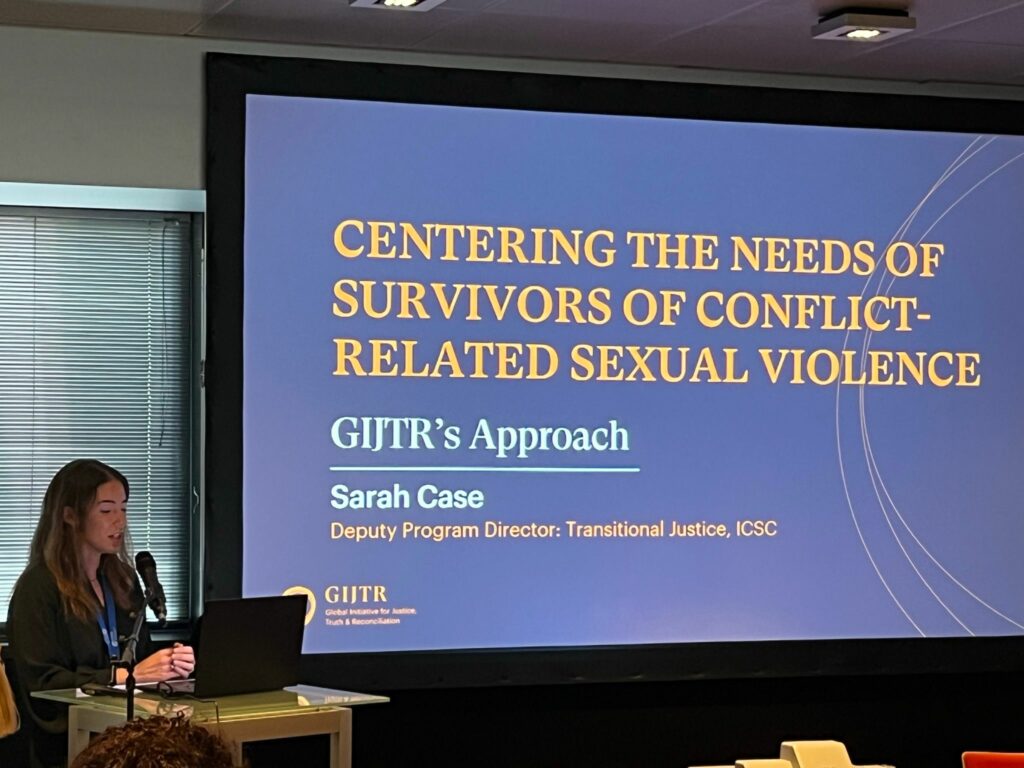
On November 15-16, 2023, the International Coalition of Sites of Conscience (ICSC), through its Global Initiative for Justice, Truth and Reconciliation (GIJTR), convened a roundtable on conflict-related sexual violence (CRSV) in the Hague, Netherlands. As a leader in the field of transitional justice, with extensive experience designing programs to support survivors of conflict-related sexual violence and their communities, ICSC was commissioned by the U.S. Department of State’s Bureau of Democracy, Human Rights and Labor (DRL) to consult with survivors, survivor advocates, civil society representatives, policymakers, government representatives and donors to generate collective recommendations to bridge existing gaps in CRSV support services to better meet survivors’ urgent and long-term needs.
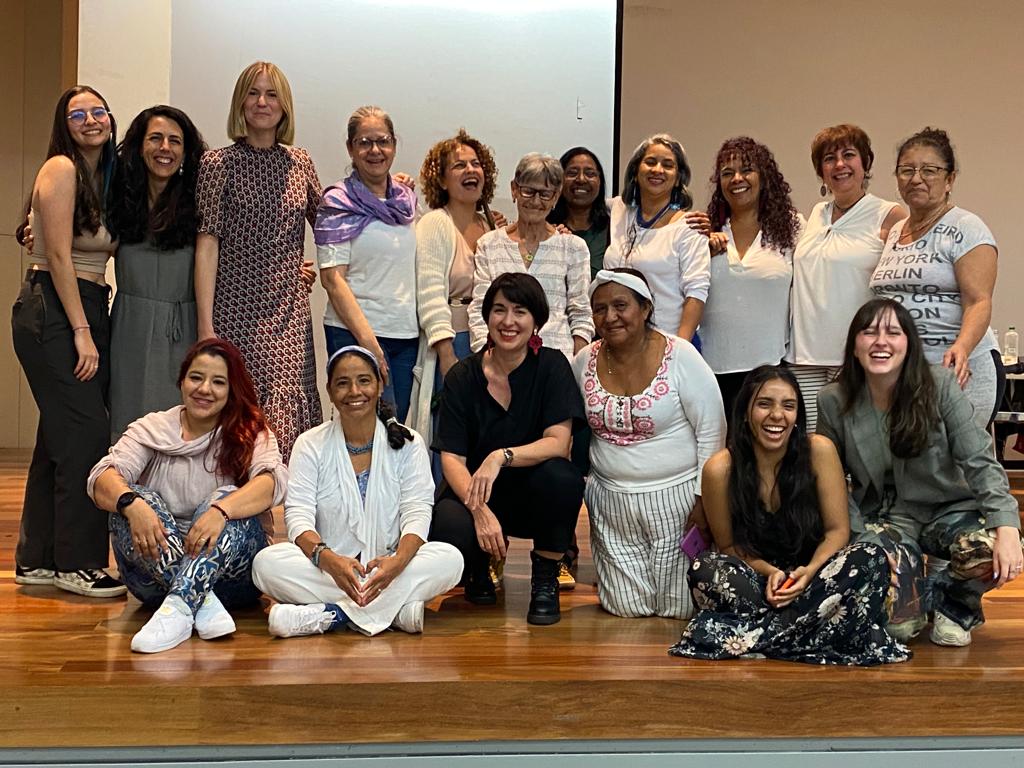
The enduring impact of CRSV upon survivors and their communities means that survivors’ needs are wide-ranging, diverse and subject to change over time. These include psychosocial support, medical services, access to education and employment opportunities, societal reintegration, justice and accountability, reparations, non-recurrence and healing. To adequately respond, a multisectoral, multidisciplinary and long-term strategy is required. Unfortunately, the structure of support systems for survivors of CRSV frequently does not match the reality and long-term nature of their needs. The provision of crucial resources and services remains siloed, with certain agencies and foundations offering funding immediately after conflict for humanitarian services like access to food and clean water, healthcare and reproductive services, and economic empowerment opportunities, while others focus on justice and accountability, reparations, or memory and non-recurrence initiatives. As a result, a significant burden is placed upon survivor networks, civil society organizations (CSOs) and community support groups that are frequently at the forefront in working with survivors and seeking funding alongside them.
Responding to this need, ICSC brought together 37 participants from 16 countries to discuss challenges they face in supporting survivors of CRSV from a range of professional angles and disciplines. Among them were representatives from CSOs and survivor networks in communities emerging from periods of widespread human rights violations, experiencing active conflict or where refugees have recently fled, such as Bangladesh, Colombia, Guinea, Sri Lanka, Syria, Turkey and Ukraine. Other participants included representatives from the U.S. State Department; the British, Canadian and Dutch governments; and International NGOs and donors all focused on designing programs and policies in support of survivors of CRSV at national, regional and international levels.
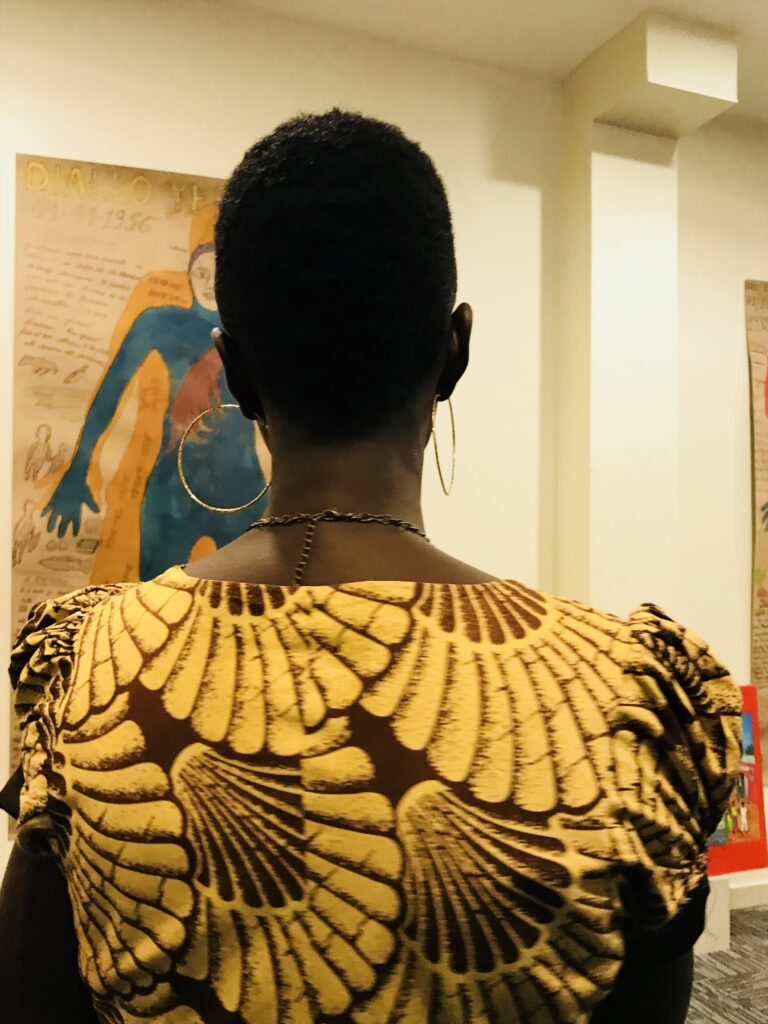
Elsewhere, ICSC’s work has helped to ensure that CRSV survivors’ needs are adequately reflected in the design and implementation of transitional justice processes. To give just one example, in the aftermath of the 2009 stadium massacre in Guinea, during which at least 150 civilians were killed and dozens of women and girls sexually assaulted, ICSC has worked with local Guinean partners, notably The Association of Victims, Parents, and Friends of September 28, 2009 (AVIPA); the Guinean Organization for the Defense of Human Rights and the Citizen (OGDH); and the Consortium of Youth Associations for the Defense of Victims of Violence in Guinea (COJEDEV) over a period of six years to build their capacities across a range of transitional justice-related topics, from truth-telling, to memorialization, advocacy and awareness-raising. These Guinean organizations have in turn worked with survivors to advocate for the start of the recently launched Stadium Massacre Trial and are actively monitoring the trial proceedings with ICSC support and advocating for measures to make it safer for survivors to attend and follow the trial’s progress.
Across contexts, ICSC and its partners have led multi-year efforts to build much needed capacity for local activists to provide psychosocial support to survivors of CRSV and—through mentoring, training and sub-grants—have supported survivor groups and CSOs to design truth-telling and memorialization initiatives that have the potential to reach much broader audiences than time-limited, formal transitional processes; to include stories and perspectives that might not otherwise emerge in a trial or truth commission; and offer survivors of CRSV tools to share their stories, if they choose to, in solidarity with and alongside others who have endured violations.
In working group discussions during the roundtable gathering, survivors’ and practitioners’ reflections echoed the lessons drawn from ICSC’s global experiences. Participants noted the importance of prioritizing the mental and physical safety of survivors across all programs; ensuring gender inclusivity in CRSV programming and the provision of support services, as male and female survivors of violations face different forms of stigma and barriers in accessing support; elongating the timeframe of transitional justice processes and ensuring appropriate sequencing of mechanisms, as it can frequently take survivors of CRSV longer to come forward with their experiences than other survivors; and considering the environments survivors will return to after receiving different forms of support, the stigma they may face, and the broader impacts of CRSV on survivors’ families and communities. The key challenges, best practices and recommendations that were identified at the meeting are being compiled into a detailed report that ICSC will release in early 2024. These recommendations will inform ICSC’s future programming in support of survivors of CRSV, as well as DRL’s ongoing programming on CRSV, including the implementation of a new global fund that DRL plans to launch for organizations providing CRSV documentation and integrated direct services in 2024.
Related Resources
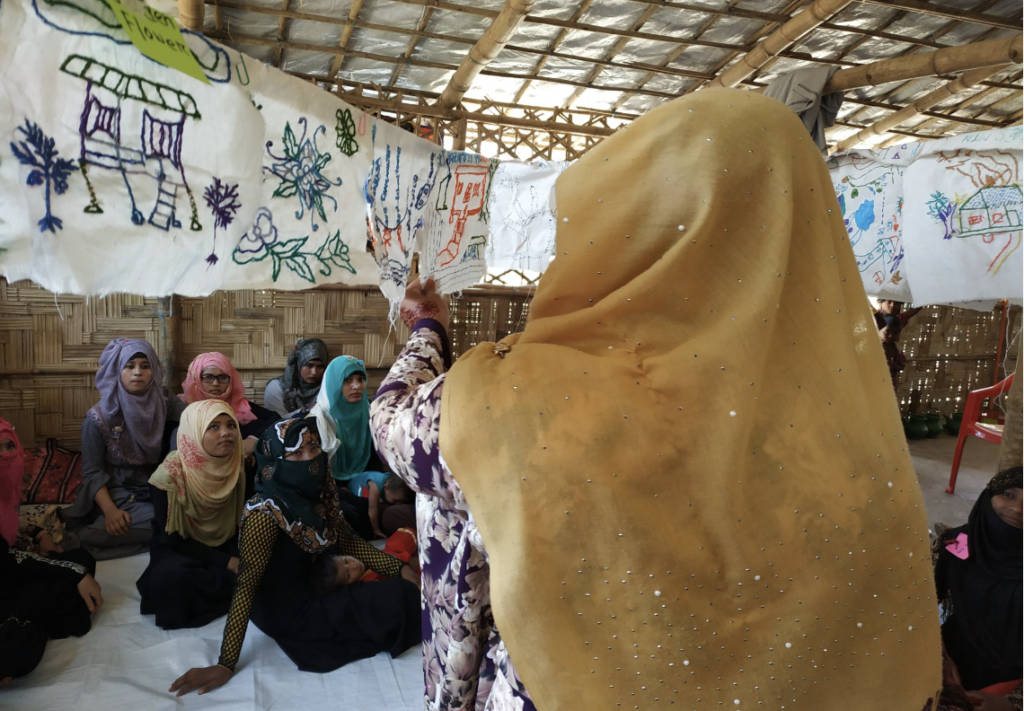
Addressing the Needs of CRSV Survivors
Through its Global Initiative for Justice, Truth and Reconciliation, ICSC is supporting the capacities of, developing trusting relationships with, and coordinating the efforts of local civil society organizations across the globe to document the stories of CRSV survivors in a timely, survivor-centered and systematic manner. Learn more here.
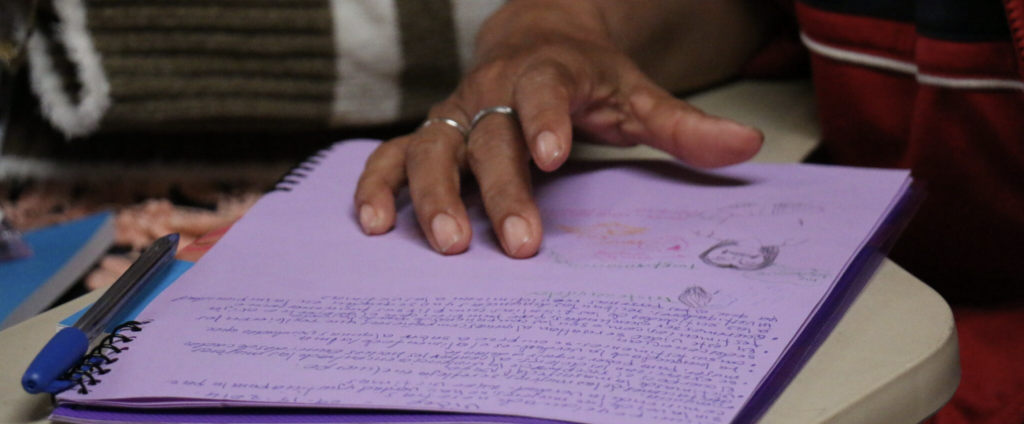
Reintegrating Survivors and Children Born of War
Learn here about ICSC’s work amplifying the experiences and biopsychosocial impacts of conflict and sexual violence on women, girls and children born of war.
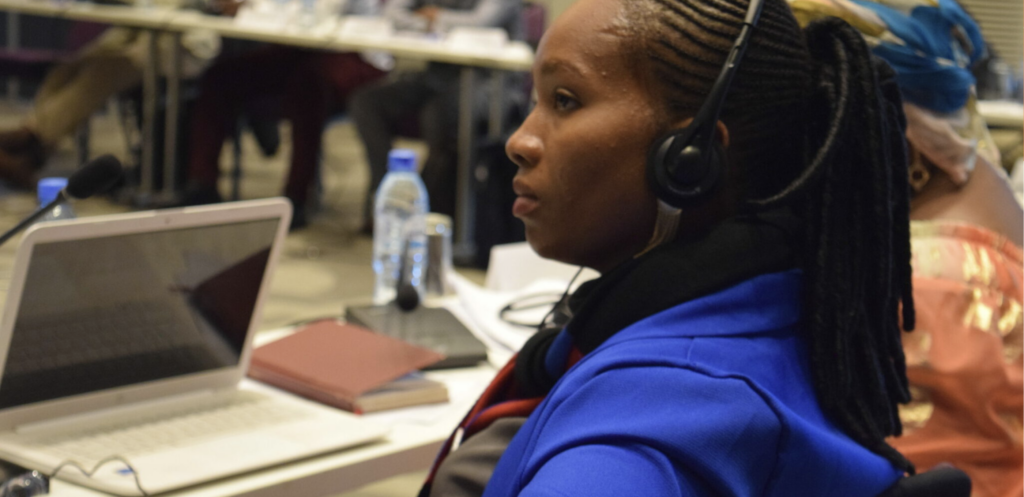
Centering Women in Transitional Justice Processes
Twenty-three years after the United Nations Security Council resolution 1325 affirmed the fundamental nature of women’s participation in post-conflict reconstruction and peacebuilding, gender sensitivity within transitional justice is a too-often-limited, superficial undertaking, at best. Through its GIJTR, ICSC is changing this dynamic, not only addressing women’s varied roles in conflict but also positioning them to led in informal and formal peace processes. Learn more here.
